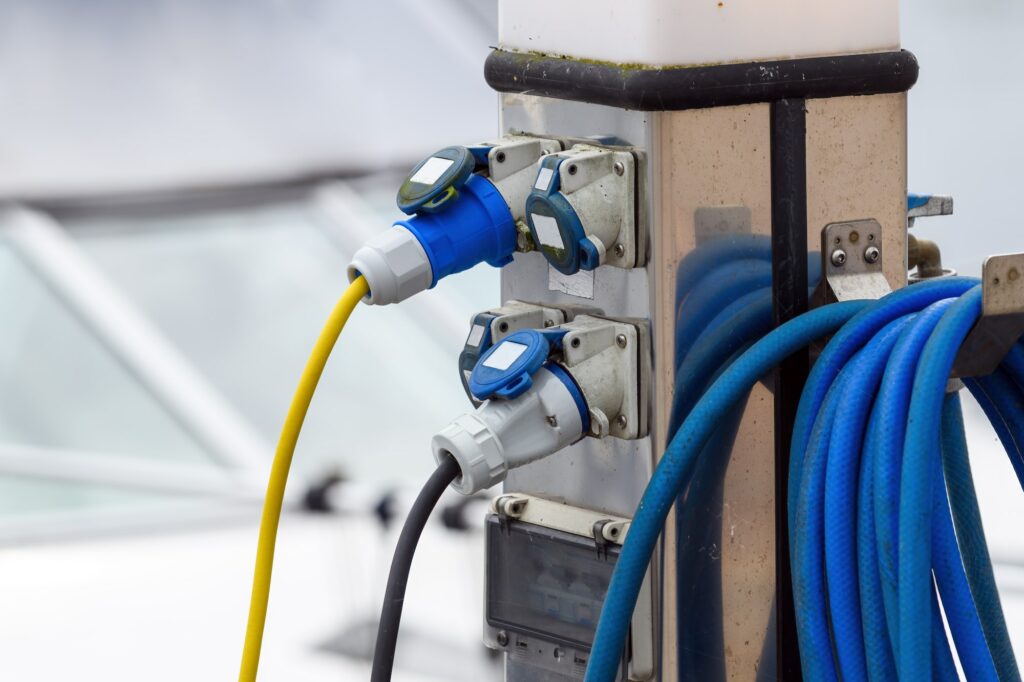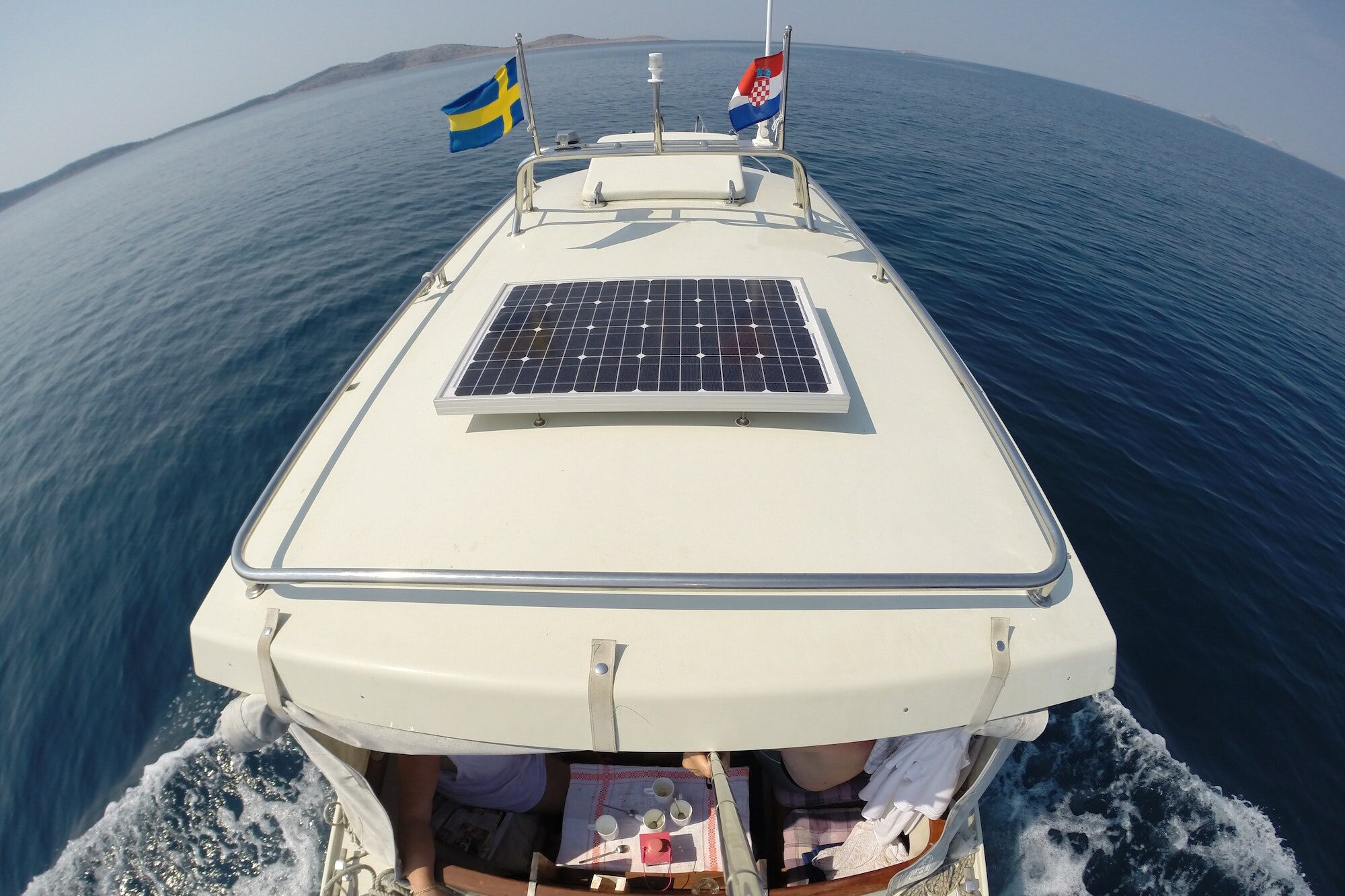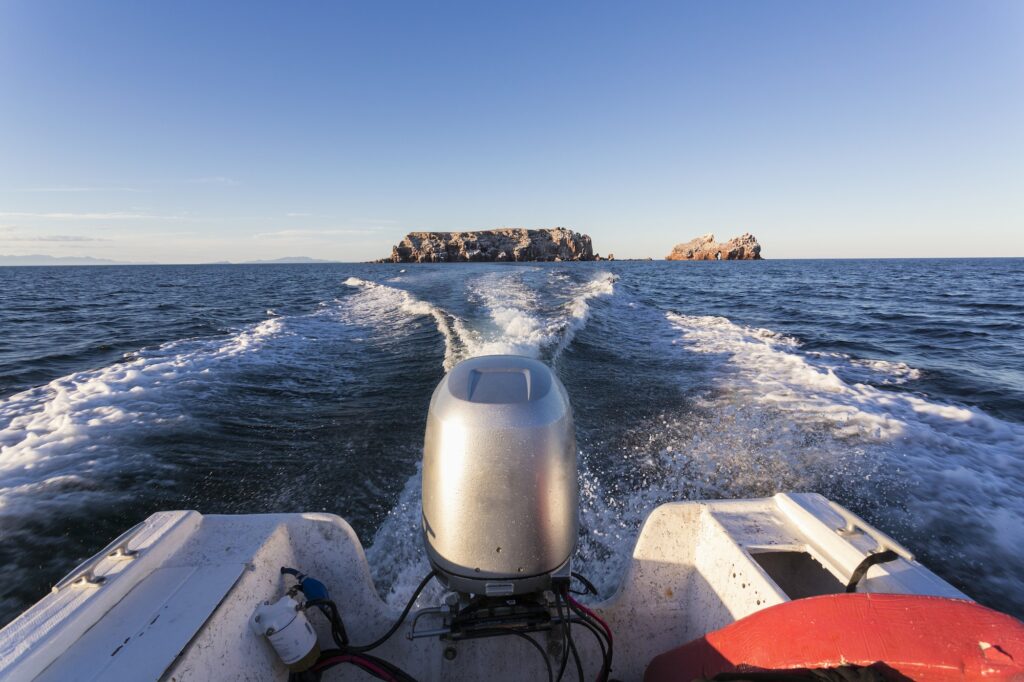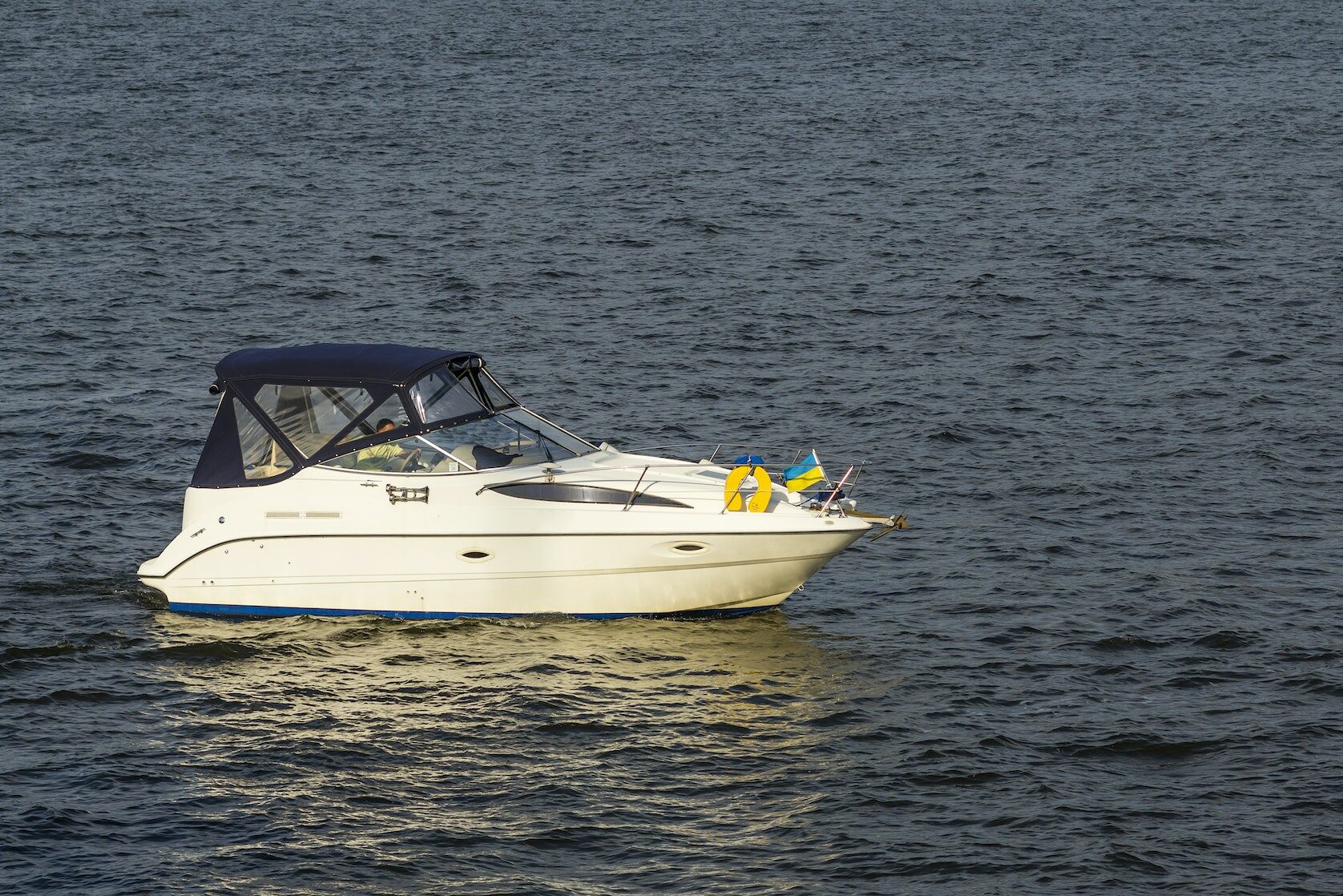As we become more conscious of the environment and our impact on it, sustainable practices are becoming increasingly popular. This is especially true in the boating industry, where electric and solar-powered boats are beginning to make a splash. In this post, we’ll explore the future of lake boats and take a look at some of the options available for those who want to go green on the water.
Lake Boats
A lake boat is a type of boat designed specifically for use on lakes. The most common types of lake boats are pontoon boats, speedboats, and cruisers. However, technology has enabled a wider range of boats to be used on lakes, making electric boats increasingly popular.
Pontoon boats are the most common type of lake boat, as they are designed to be used in calmer waters and provide a stable ride. They usually have flat bottoms and low sides, with multiple pontoons connected to the hull. This makes them well-suited for fishing, sightseeing, and general cruising.
Speedboats, as the name implies, are designed for higher speeds. They come in a variety of shapes and sizes, from small one-person craft to large, powerful vessels. Speedboats are built for speed and maneuverability, making them ideal for water sports and racing activities.
Cruisers are leisure boats that are designed for long-distance cruising. They typically have larger cabins and are equipped with amenities such as sleeping quarters, bathrooms, and kitchens. Cruisers are perfect for spending multiple days on the lake, providing a comfortable living space while maintaining good speed and maneuverability.
In addition to traditional lake boats, electric boats are becoming increasingly popular. Electric boats are powered by batteries, making them ideal for quieter, more eco-friendly activities. These boats are often smaller, with a sleek design that allows them to move quickly and efficiently. They are perfect for day trips, fishing, and sightseeing on the lake.

Benefits of electric boats
Low emission levels
Electric boats are an increasingly popular choice for eco-friendly travel, as they emit no carbon emissions. In comparison to gasoline-powered boats, a Life Cycle Assessment (LCA) indicated that electric boat manufacture led to 55% more CO2 emission into the atmosphere. This is because electric boats require lithium-ion batteries for their propulsion systems, which have a high carbon cost relative to other electric vessel manufacturing processes. In contrast, solar-powered hybrid boats are emerging as an attractive alternative, as they produce zero emissions and have the added advantage of noise reduction.
Quieter operation
Electric boats offer a number of benefits over traditional gasoline-powered boats, including quieter operations. Electric motors are significantly quieter than gas engines, making them ideal for use on lakes where noise pollution is a concern. Additionally, electric boats produce no emissions, making them a more environmentally-friendly option than gas-powered boats.
Reduced fuel costs
The use of an electric boat reduces fuel costs by eliminating the need for oil and transmission fluid changes, filter and impeller replacements, starter problems, and winterization. Additionally, since electric motors instantly provide full torque, boats powered by them can get up on the plane faster, cutting fuel costs.
More convenience
Electric boats offer more convenience than traditional boats powered by fuel because they have no emissions, meaning you don’t have to worry about pollutants or the smell of gasoline. Additionally, electric boats are quieter than fuel-powered boats, so you can enjoy more peaceful activities such as fishing or simply watching the scenery without being disturbed by engine noise. Finally, electric boats are more energy efficient and cost-effective since they consume only a fraction of the electricity used by fuel-powered engines. This means you can enjoy your time on the water without worrying about additional costs.
Increased range
Electric boats offer a number of advantages over traditional petrol or diesel-powered vessels, chief among them being increased range. Electric motors are far more efficient than their internal combustion counterparts, meaning that electric boats can travel further on the same amount of battery power. This is a significant advantage for lake boaters, who often have to contend with long distances and limited charging options.
Increased safety
Electric boats offer several advantages over traditional petrol-powered vessels, chief among them increased safety. Electric motors are much quieter than their internal combustion counterparts, making it easier for operators to hear approaching hazards. Additionally, electric boats produce no fumes or exhaust, eliminating the risk of carbon monoxide poisoning.
Reduced maintenance costs
The reduced maintenance costs of electric boats are an essential factor in improving the overall benefits of electric boats. Electric motors do not need to change oil and transmission fluid, replace filters and impellers, or deal with starter problems. This leads to cost savings when re-powering, as aftermarket conversions can utilize existing drive shafts and components. Additionally, the annual operating and maintenance costs of an electric boat with onboard solar panels for the supplemental charge are estimated to be 40% less than the average cost of a gasoline-powered pump-out boat. These cost savings are primarily due to the use of electricity (US $400 annually) instead of gasoline (US $1080 annually) as an energy source and the lower maintenance costs for an electric system.

Importance of sustainability and electrification in the boating industry
The boating industry faces a significant challenge in transitioning to sustainability and electrification. This is due to the increasing pollution caused by recreational boating, which is leading to the destruction of aquatic ecosystems and the overuse of waterways. This has necessitated a shift to electric boating technology to reduce these environmental impacts and ensure a sustainable future for the industry. By transitioning to electric propulsion systems, boaters can benefit from the cost-effectiveness and reduced emissions of electric boats. Additionally, electric motors offer more excellent maneuverability and performance than traditional gasoline-powered engines.
In order to achieve a successful transition to electric motors, manufacturers must consider the financial concerns of stakeholders, such as service providers and marinas. They must also address the technical issues associated with electric boats, such as their limited battery capacity and the increased complexity of yacht manufacturing. Therefore, adopting electric and hybrid boats and motors is essential for the industry to move forward in a sustainable, responsible manner.
Luckily, governments worldwide recognize the need for the marine industry to shift to electric technology and are implementing policies to support the transition. In the UK, for example, the government has set a net-zero greenhouse gas emissions target by 2050, including adopting electric boats and ships. This has spurred agencies and organizations to develop electric boats and motors and provide incentives for marinas to embrace the technology.
It is clear that the boating industry must transition to sustainability and electrification to ensure a bright future for the industry. Manufacturers and stakeholders must work together to create an environment that supports electric technology adoption and provide incentives and resources to encourage the transition. By doing so, the marine industry can move closer to a more sustainable and responsible future.
Sustainable Options for Lake Boats
Solar-powered boats
Solar-powered boats for lake boats offer a revolutionary alternative to traditional gasoline and diesel-powered boats, with a variety of features and benefits. Solar-powered boats are powered by electric propellers, solar panels, environmentally-friendly batteries, and waterjet propulsion, alongside filters to reduce noxious substance output. This means they generate zero emissions while in motion, significantly reducing the pollution that would otherwise be produced by traditional boats.
In terms of propulsion, solar-powered boats use lithium-ion batteries, which offer up to 10 times longer battery life than lead-acid batteries. Solar-powered boats also have the advantage of noise reduction, producing less noise than their gasoline- or diesel-powered counterparts.
Solar-powered boats also come with advanced digital ecosystems which can monitor critical values such as volts and temperature, helping to extend the lifecycle of propulsion systems. Companies such as Silent-Yachts and Soel Yachts are building fully solar-sustainable, oceangoing production yachts designed to be powered entirely by solar energy alone. On the other hand, Faro Boats provide charging docks which remove the need for solar panels on the boat.
Overall, solar-powered boats offer a clean, sustainable, and quieter alternative to traditional boats, making them ideal for lake boats.

Hybrid boats with electric and gas-powered options
As the world increasingly looks for sustainable and environmentally friendly options, the boating industry is also searching for ways to “go green.” One option that has gained popularity in recent years is hybrid boats that use both electric and gas-powered engines.
Hybrid boats offer a number of advantages over traditional gas-powered boats. First, they are much quieter than their gas-powered counterparts, which can be a major selling point for those who want to enjoy a peaceful day on the lake. Additionally, hybrid boats tend to be more fuel-efficient than gas-powered ones, saving boaters money in the long run.

Biofuel-powered boats
Biofuel is an increasingly popular option for lake boats due to its renewable and sustainable nature. Biofuel is a renewable fuel from vegetable oils, animal fats, or other biodegradable waste. It is usually a blend of petroleum diesel and some percentage of biofuel, usually in the form of biodiesel. Depending on the specific lake boat, there are a few options available.
The most common option is to use a biodiesel blend, which is a blend of petroleum diesel and biodiesel. This blend can be used in any diesel engine, and the biodiesel component of the blend can be adjusted to suit the needs of the boat.
Another option is to use a straight biofuel, such as vegetable oil or animal fat, in a specifically designed engine. This requires a particular engine designed to run on pure biofuel and is usually a more expensive option.
Finally, some lake boats may also be able to use biofuel in conjunction with other fuel sources, such as diesel. This hybrid approach can allow boats to take advantage of the efficiency of biofuel while still having the option of using diesel if necessary.

The Future of Electric Lake Boats
Advancements in battery technology
Advances in battery technology for electric lake boats have been significant, with lithium-ion batteries being much lighter, more energy-dense than lead-acid batteries, and lasting three times as long. Companies have been manufacturing battery packs containing fewer than 100 to thousands of cells, along with battery management systems (BMS), to ensure that the batteries remain safe and stable. Outboard motor makers have been assembling their own battery packs, engineering their own BMS controllers, and marinizing electric batteries from sources such as BMW for use in various boats. In order to increase the lifespan of propulsion systems, digital ecosystems are monitoring basic parameters like temperature and voltage in solar-powered hybrid boats. Finally, motor design and battery technology advances have led to leaps in marine electric propulsion, with zero emissions and noise reduction being two of the added advantages.
Increase in popularity and availability
The popularity and availability of electric lake boats have increased dramatically in recent years due to several factors. Technological advances have allowed for more efficient and powerful electric motors, making them easier to use and more accessible. Additionally, the improved efficiency and reduced costs associated with electric lake boats have made them more attractive to consumers. The environmental benefits associated with electric lake boats have also contributed to their increasing popularity. All these factors have led to the increased availability of electric lake boats, making them an increasingly viable option for recreational boaters.
Government incentives and regulations promoting sustainable boating
Government incentives and regulations promoting sustainable boating include:
1) Tax credits for electric boating technology and renewable energy sources for propulsion and onboard systems.
2) Subsidies for electric boats and installing solar plates on recreational vessels.
3) Regulations requiring that all recreational vessels have filtration systems to reduce harmful substance output.
4) Mandatory onboard pump-out systems to ensure the proper disposal of human waste generated on recreational boats.
5) Mandates for the use of recyclable materials in shipbuilding.
6) Restrictions on using gasoline- and diesel-powered boats in ecologically sensitive areas.
7) Grants and subsidies for new electric propulsion and energy storage technologies research.
8) Regulations enforcing the monitoring of waterway access and the preservation of aquatic habitats.
FAQ
What makes electric boats a more sustainable option compared to traditional gas-powered boats?
Electric boats provide a more sustainable option than traditional gas-powered boats due to their inherent environmental benefits. Electric motors are much quieter than those running on gasoline, therefore reducing stress on marine wildlife. Electric-powered boats don’t produce harmful emissions like sulfur and nitrous oxide, giving them a much lower environmental impact than their gas-powered counterparts. Furthermore, electric-powered boats are much more versatile and can have multiple power sources, such as wind, solar, nuclear, hydrogen, diesel, biofuel, or petrol-generating sources, making them an excellent choice for any boating enthusiast.
What is the range of an electric boat, and how long does it take to charge fully?
Electric boats are becoming increasingly popular due to their sustainable and environmentally friendly nature. One of the most frequently asked questions about electric boats is regarding their range – that is, how far they can travel on a single charge. The answer to this question depends on a number of factors, including the size and weight of the boat, the type of batteries used, and whether or not the boat is equipped with solar panels.
On average, electric boats can travel between 20 and 30 miles on a single charge. However, some electric boats are able to travel much further. For example, the Sunstar 28 solar-powered electric boat can travel up to 100 miles in a single day, thanks to its solar panels.
How does the noise level of electric boats compare to traditional gas-powered boats?
The noise level of electric boats compared to traditional gas-powered boats is much lower. Electric boats don’t produce any smelly emissions, C02, or nitrous oxide, and there is no risk of oil spills like in traditional gas-powered boats. As a result, electric boats are much quieter, making them ideal for wildlife watching, fishing, or relaxed boating.
What are the environmental benefits of electric and hybrid boat propulsion?
Electric and hybrid boat propulsion offers a variety of environmental benefits, including the reduction of noise, vibration, and the release of harmful emissions. Additionally, solar-powered hybrid boats are emerging as a viable alternative to conventional boats, providing clean and emission-free power. Furthermore, electric motors provide instant torque, enabling boats to get up on a plane faster with zero emissions. Lastly, electric-powered boats use lithium-ion batteries, which are lightweight, low in toxicity levels, and more easily disposed of in line with environmental best practices. Together, these features allow electric and hybrid boats to protect and sustain the environment while providing a more enjoyable experience for boaters.
Are there any government incentives or regulations that support electric boats?
Yes, the UK has targeted net-zero greenhouse gas emissions by 2050, including adopting electric boats and ships. Additionally, Europe – led by Germany – is expected to hold the largest share of the market due to the highest demand for new electric boats. This indicates that government incentives and regulations are in place to support the use of electric boats.

